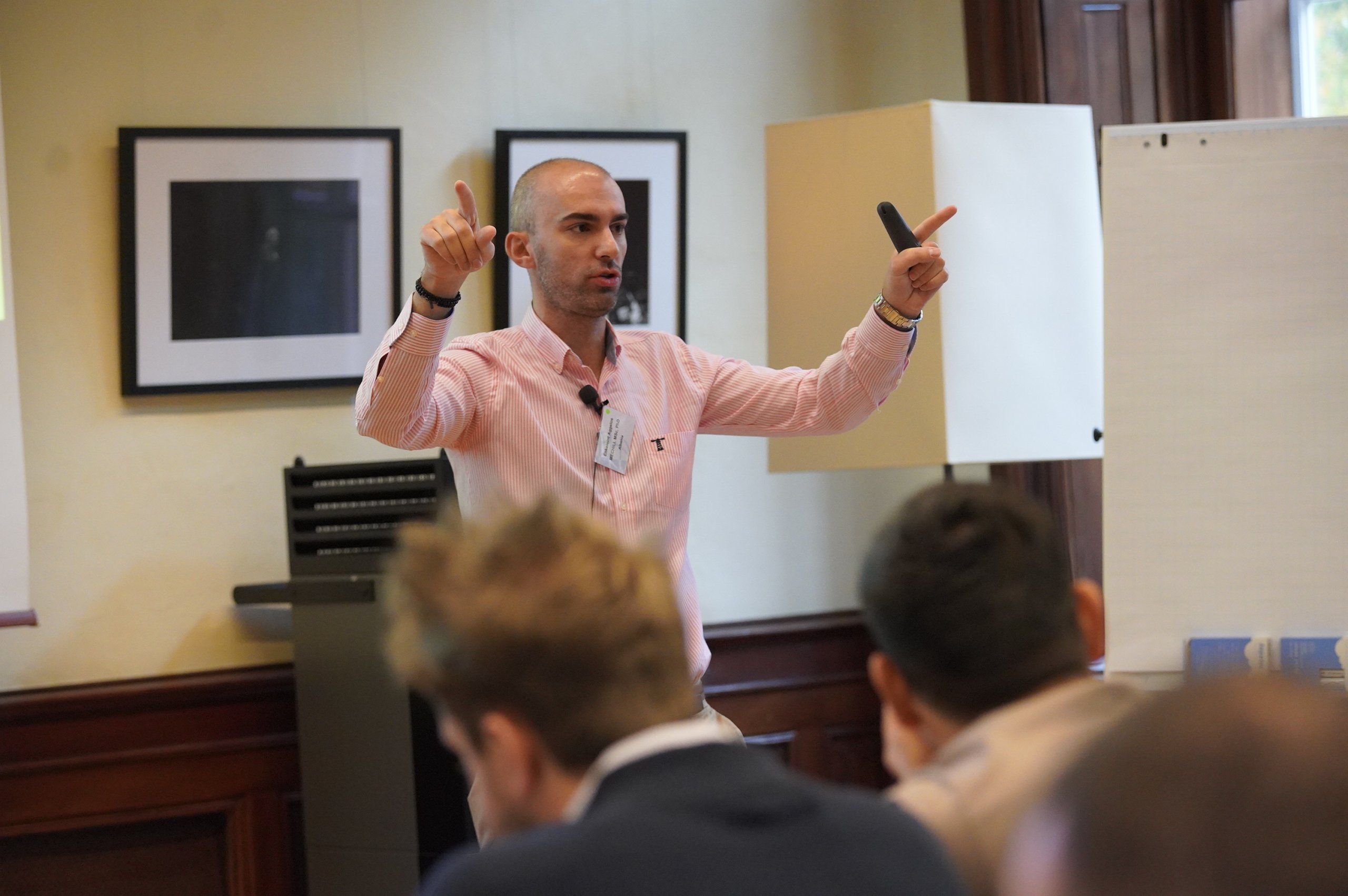From October 9 to 15, 2022, 35 fellows from 24 different countries and a broad variety of medical backgrounds gathered at Schloss Arenberg to attend the Maastricht University Seminar in Economic Evaluation in Healthcare, which is part of the OMI leadership program. It is designed to enable OMI alumni to assume leadership positions in the healthcare systems of their countries.
Silvia Evers, Professor of Public Health Technology Assessment and Scientific Director of the Care and Public Health Research Institute at Maastricht University, led this week’s seminar. Milena Pavlova, Professor of Health Economics and Equity at Maastricht University, served as co-course director. Additional faculty included Kostas Athanasakis, Research Fellow at the National School of Public Health in Athens, Greece, Tomasz Bochenek, Deputy Director and Assistant Professor at the Jagiellonian University Medical College in Krakow, Poland, and Lorena Dini, Senior Health Systems Researcher and Designer Base at the Charité – Universitätsmedizin Berlin, Germany. Bosiljka Djikanovic, Associate Professor of Social Medicine and Public Health at the University of Belgrade Faculty of Medicine, Serbia, Rositsa Koleva-Kolarova, Senior Researcher at the University of Oxford, UK, Céu Mateus, Professor of Health Economics at Lancaster University, UK, and Enkeleint Aggelos Mechili, Associate Professor of Health Policy at the University of Vlora, Albania, also served as faculty members. Ciaran O’Neill, Professor of Health Economics at the Queen’s University Belfast, Northern Ireland, and Elena Petelos, Public Health Specialist at the University of Crete, Greece completed the international group of experts.
The relevance of an economic evaluation for policymaking highly depends on the chosen framework of that particular economic evaluation. The framing of an economic evaluation is an important step in the design phase and considers the making of a series of motivated choices which together define and describe the economic evaluation. In this phase, one has to think about the objective, audience, perspective, time horizon, technology of interest, target population, and comparative technologies. The choices made in framing an economic evaluation set the boundaries of the economic evaluation and determine which type of economic evaluation and which design is the most appropriate to address the decision problem. The framework of the economic evaluation determines which data should be collected and how the data should be analyzed, presented, and interpreted. Ultimately, the framework of the economic evaluation determines if and to what degree results will be useful and relevant for policymaking. Choosing a ‘wrong’ framing may lead to inefficient decisions or not using cost-effectiveness results at all.
The main objective of this week’s course was to develop a simplified proposal for an economic evaluation study of a chosen health technology and setting. Health professionals confronted with an economic evaluation need to make choices regarding the study design and framework, and the assignment demonstrated how this task can be approached. The application of the content taught during the lectures was at the core of the assignment. Fellows had the possibility to consult lecturers during the proposal preparation phase. On Thursday afternoon, the groups reported their outcomes and received feedback from lecturers and colleagues.











